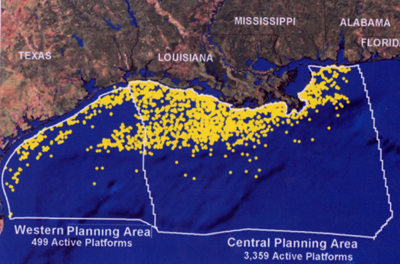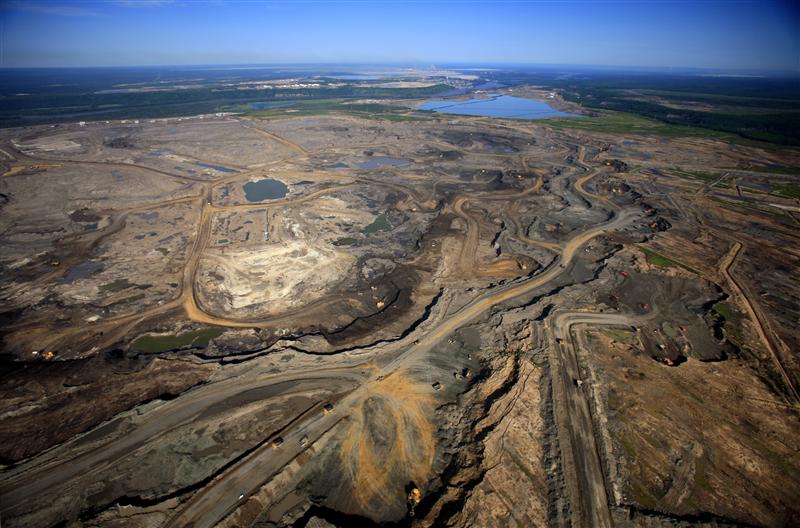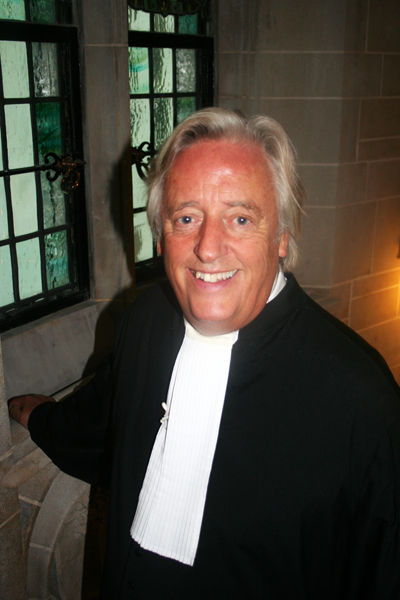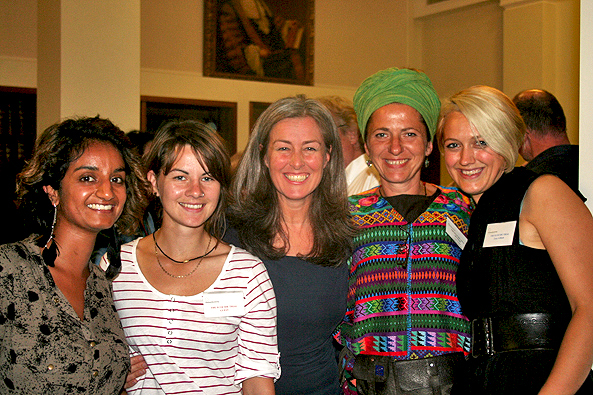Ecocide - A Crime Against the Planet
Hits: 671711th October 2011
 On the 30th September 2011, the CEO’s of two British oil companies were found guilty of Ecocide at the Supreme Court in Westminster. However, the trial was a mock one, organised by environmental rights lawyer, barrister and author Polly Higgins, in which she could test the robustness of her concept called Ecocide, a proposed legal mechanism to halt the destruction of the planet.
On the 30th September 2011, the CEO’s of two British oil companies were found guilty of Ecocide at the Supreme Court in Westminster. However, the trial was a mock one, organised by environmental rights lawyer, barrister and author Polly Higgins, in which she could test the robustness of her concept called Ecocide, a proposed legal mechanism to halt the destruction of the planet.
But this facinating event took a bold new step towards making the individuals responsible for crimes against humanity, nature and future generations accountable for their actions.
The prosecution, the defence, the judge, the jury, and the expert witnessess were made up of real people giving their time for free. Only the defendants, played by actors, and the oil companies were fictional. The indictments were based on recent real-life environmental events.
If properly enshrined into International Law under the Rome Statute (2002), Ecocide would become the fifth crime against the peace of the planet. The four existing international crimes against peace are; Genocide, Crimes Against Humanity, War Crimes and Crimes of Aggression.
The indictment against the first defendant was in relation to the 2010 Deepwater Horizon oil spill in the Gulf of Mexico, where 250 million gallons of crude oil poured into the deep ocean creating a “dead zone” some 200 square km, killing and oiling birds, and damaging the pristine mangrove swamps in the Mississippi Delta. The leak was not capped for four months.
Two further counts against both defendents relating to the destruction of Canada’s ancient Boreal Forests, specifically in Alberta, where a by-product of extracting oil from bitumen in the Athabasca Tar Sands has created a large number of toxic tailing ponds, some 12 square km (photo (c) Greenpeace).
 Tailing ponds are disasterous for the millions of native and migrating birds landing on these toxic waters as they arrive at one of the largest mating and nesting habitat for birds anywhere on the planet.
Tailing ponds are disasterous for the millions of native and migrating birds landing on these toxic waters as they arrive at one of the largest mating and nesting habitat for birds anywhere on the planet.
Birds become contaminated on contact with the cocktail of chemicals and oil mixed with large amounts of water from the Athabasca river, the majority of which cannot be recycled or drained.
Each barrel of oil needs between 2-4 gallons of water to process it. From the air, the tailing ponds appear as glistening lakes and 1,600 birds died in one contamination incident.
Extensive mining activity in the area has already destroyed one quarter of the 10,000 year old forest, and is ongoing. The expert witness estimated that the recovery time of the Boreal Forest cleared for surface mining and tailing ponds leaching four billion litres of dirty water directly into the soil each year would be as long as it took to create it.
 The prosecution’s case was led by the stellar Michael Mansfield QC, (left) who lit up the courtroom with a charge of energy every time he addressed the Court. He acted as if the Ecocide Act had already passed into domestic law to reflect his concerns about crimes against the environment, and his responsibility as “a trustee of the planet."
The prosecution’s case was led by the stellar Michael Mansfield QC, (left) who lit up the courtroom with a charge of energy every time he addressed the Court. He acted as if the Ecocide Act had already passed into domestic law to reflect his concerns about crimes against the environment, and his responsibility as “a trustee of the planet."
In his opening remarks, Michael Mansfield explained that in this case the intention of the defendants is irrelevant, it’s about the consequences. The corporation is not on trial here. He said the important difference is that, “the international community, by integrating these principles, is holding the CEO’s personally responsible for the systems within individual corporations that has caused the damage.” This is a form of strict liability known as superior responsibilty and applies to all three counts.
The agreed definition of Ecocide is, “The extensive damage, destruction to or loss of ecosystems of a given territory, whether by human agency or by other causes, to such an extent that peaceful enjoyment by the inhabitants of that territory has been severely diminished.” Ecocide is measured in relation to the size, duration and impact of damage.
Chris Parker QC, argued in defence that the CEO’s were being made scapegoats and that the jury should concentrate on them as men and not heap the blame on their heads and send them up the mountain like goats to the local wolf. He minimised the scale of the loss of life by saying that millions of birds died each year as a result of flying into windows, getting shot and eaten by cats. And, he suggested that the spill had increased fish stocks because fishing could no longer take place in the area.
Parker played down the failure of the CEO’s to put adequate pre-emptive measures in place to avoid accidents on oil rigs or birds landing on tailing ponds. He focussed on the £34.5 million the company spent on cleaning up the oil spill, which is in the top 5% of spills worldwide, as well a $22 million donation to wildlife charities, money which he said was originally set aside for renewable energy projects.
It came as no surprise that there was a surplus of Co-Rexit, the dispersant authorised by the US agencies cleaning up the oil spill. Co-Rexit is found to affect red blood cells, skin irritation, liver, kidney failure, and banned in the UK in 1998, and elsewhere in Europe, hence the huge stock pile. Although, there are numerous reports of human deaths and illnesses from a “Gulf blue plague” resulting from the clean up operations,which included the use a genetically modified dispersant, human damages were left out of this case.
 Similarly in Athabasca, the impact on First Nation indigenous communities has been devastating. In 2009, concerns have been raised by the Alberta Health Services about the elevated cancer rates in local people. Polly Higgins (pictured centre) argues in this year's People’s Book Prize winning book and campaign Eradicating Ecocide that peace is unachievable whilst the rules of the game continue to protect commercial expropriation of the planet for profit. “I’m not anti-profit, but profit out of destruction is wrong. It’s a shift from the protection of the individual and corporate interests to the protection of the public, environmental and societal interests.”
Similarly in Athabasca, the impact on First Nation indigenous communities has been devastating. In 2009, concerns have been raised by the Alberta Health Services about the elevated cancer rates in local people. Polly Higgins (pictured centre) argues in this year's People’s Book Prize winning book and campaign Eradicating Ecocide that peace is unachievable whilst the rules of the game continue to protect commercial expropriation of the planet for profit. “I’m not anti-profit, but profit out of destruction is wrong. It’s a shift from the protection of the individual and corporate interests to the protection of the public, environmental and societal interests.”
Despite Michael Mansfield’s best efforts, the jury returned a verdict of not guilty to ecocide in the Gulf of Mexico. However, majority and unanimous guilty verdicts were returned on both the CEO’s involvement with bird fatalities in tailing ponds in the Tar Sands.
A host of ethical investers sponsoring the Ecocide trial included Ecotricity, Holden and Partners, Worldwise Investors, Thortons Budgens, and principle organisers, The Hamilton Group. It was streamed live on SKY TV and is available as a DVD for schools and businesses.
But this trial could have easily been about deforestation in the Amazon or fracking (gas flares) in the Niger Delta. I spotted ex-environment minister Michael Meacher taking an interest in the proceedings and I was heartened to see a woman driving this important planetary agenda.
After the trial Polly Higgins told me, "Conviction of two CEO's for Ecocide of the Tar Sands is affirmation of how much we need this crime to be placed on the statute books. It's a crime to commit corporate Ecocide and we now must hold up the law to enable action to be taken to prohibit it from happening again and again and again. Today it is the norm to destroy the Earth without consequence, tomorrow it will be a crime in law." It appears that the ethical imperative won the day.
Photos of Michael Mansfield and Polly Higgins (c) Sam Burcher 2011








